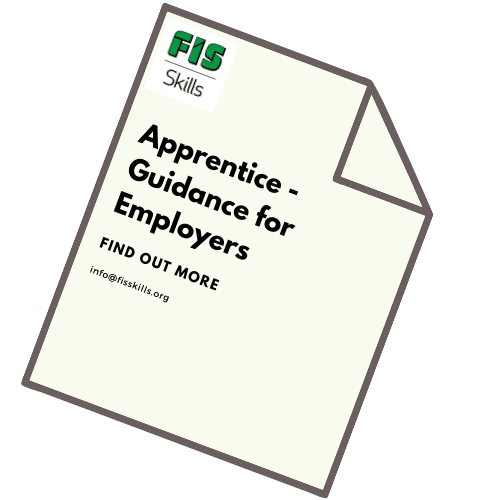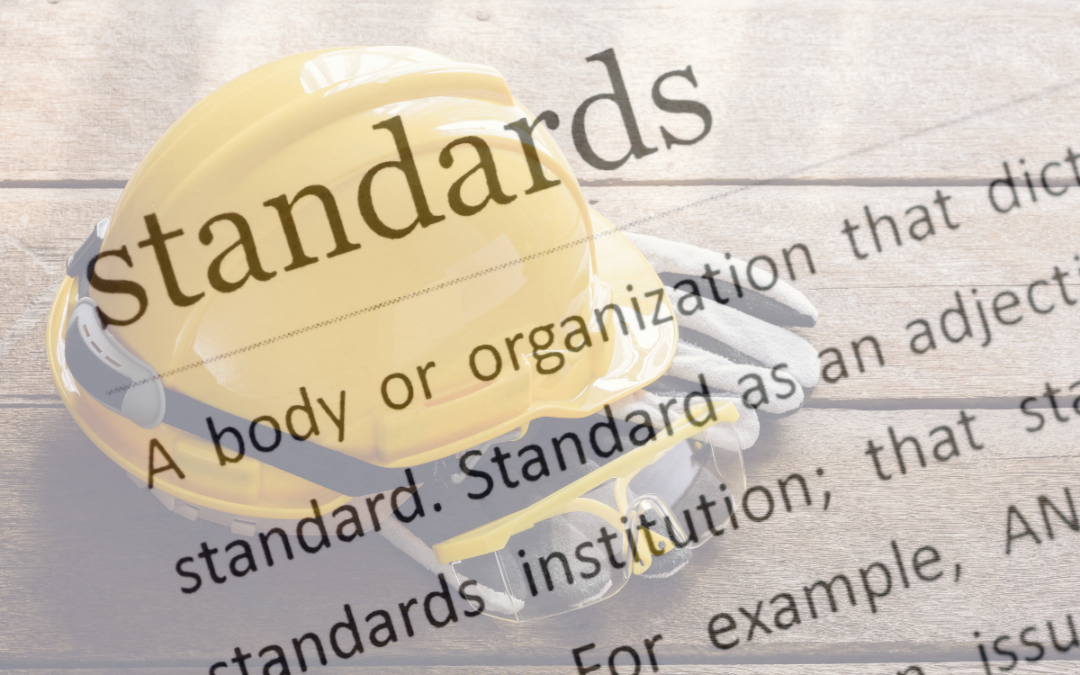
by Clair Mooney | Mar 18, 2021 | Skills
The cap on apprenticeship starts for small employers will be reset to zero from April 2021. It means that any non-levy paying business can start up to 10 new apprentices from 1 April 2021 regardless of the number they currently employ. The cap will be kept under review during the next financial year.
Non-levy-paying businesses have been capped on the number of apprentices they can put through the digital apprenticeship service since January 2020 – starting with a limit of three before increasing to 10 in July – to ensure the overall apprenticeships budget is not overspent. The digital service was launched in April 2017 but was only for levy-paying employers to manage and spend their apprenticeship funding. Small employers will fully transition onto the service next month, meaning that all apprenticeship starts must now go through the system rather than procured non-levy contracts held by training providers.
Announcing the cap reset, the Education and Skills Funding Agency (ESFA) head of apprenticeship operations Jason Poole said: “The cap is there to help with the overall spend controls that we need to have in place for the whole apprenticeship programme. As we’ve moved away from individual provider contracts, we still need a way to be able to monitor and manage the flow of funding. As we are now moving from the beginning of next month to have all new starts on the service, I am really pleased to confirm that from 1 April, we will be resetting that total. There are quite a lot of employers now who have started to use those reservations and an increasing number that have got up to their limit of 10.”
Apprentice “reservations” made by small employers before April which convert to starts beyond next month will not count in the new 10 pot. As Poole pointed out, the cap was first imposed owing to concern that the amount of money not being spent by levy payers wouldn’t be enough if the government allowed small employers to have as many starts as they wanted. But, in the past year starts have dropped dramatically across England because of the pandemic and the overall apprenticeships budget is expected to be underspent this year.
ESFA also announced that the reservation period for employers who do not pay the apprenticeship levy is being extended from three to six months from 1 April 2021. This means that these employers will be able to reserve funds up to six months before an apprenticeship is planned to start.
Have a look at the FIS Apprentice – Guidance for Employers for details of support available for taking on an apprentice. If you would like any further information, don’t hesitate to contact us on 0121 707 0077 or email info@thefis.org

by Clair Mooney | Mar 18, 2021 | Skills
Hiring an apprentice is a productive and effective way to grow talent and develop a motivated, skilled and qualified workforce. Incentive payments are available to employers, but differ across each home nation.
Wales
The Employer Incentive Scheme in Wales will now run until 30 September 2021. Businesses can claim up to £4,000 (increased from £3,000) for each new apprentice they hire under the age of 25 (for at least 30 hours per week) and to £2,000 for under 30 hours. For workers aged 25 and over, businesses can access £2,000 for each new apprentice they hire on a 30 hour+ and a £1,000 incentive for apprentices working less than 30 hours. Payments are restricted to 10 learners per business and dedicated funding is also available to recruit disabled people and for workers who lost a previous apprenticeship position because of COVID-19.
Scotland
The grant will provide:
- £5,000 for employers taking on or upskilling a 16 to 24-year old apprentice, and for those aged up to 29 years who are disabled, care leavers and minority ethnic
- £3,500 for employers taking on or upskilling an apprentice aged 25 plus
England and Northern Ireland
Employers will receive £3,000 for new employees of any age who start their apprenticeship from 1 April 2021 to 30 September 2021. The incentive payment is in addition to the £1,000 employers already receive for hiring an apprentice, aged 16 to 18 years old or under 25 with an education, health and care plan or who has been in the care of their local authority.
Visit the Skills Hub for more information on taking on an apprentice and qualifying your workforce.

by Clair Mooney | Mar 12, 2021 | Skills
Following discussions with FIS Working Groups a request to change qualifications was submitted to the Standard Setting Body (SSB) for Construction. In order to meet regulatory requirements the SSB must show they have consulted on these proposed changes as widely as possible across all four home nations. All of the changes proposed by FIS Working Groups are in a bid to keep people safe and are:
- Change the National Occupational Standards, Recommended Qualification Structure for Interior Systems level 2 by the addition of COSVR355 v3 Erect fire resisting walls and wall linings. This will provide a fire protection qualification outcome for dryliners.
- Add a new National Occupational Standard for service, maintain and repair of operable partition wall systems, as an option. It has been reported there have been accidents and near misses during these operations, the inclusion of this standard will provide a qualification route for individuals employed in this area. For a copy of the proposed draft standard please contact George Swann on 07553 874838 or email georgeswann@thefis.org
- In response to the Grenfell inquiry and the work on competence, insert under ‘methods of work’ as a requirement of knowledge ‘how fire spreads through a building, how to impede it and protect people and the structure’ to COSVR125, 126, 127, 129, 130, 133, 618, 620, 769, 770 all contained I the Recommended Qualification Structure Interior Systems level 2. By doing this the statement will cascade into all qualification outcomes (academic, trained and competence) derived from these standards thereby giving operatives the required knowledge.
If you agree with these changes please copy and paste the following message and email it to Standards.qualifications@citb.co.uk with the subject header of Interior Systems NOS Changes:
Hello
This message is to show support for the changes requested via FIS Working Groups.
[Insert your normal signature block]
If you disagree with these changes please explain the reason for your disagreement by email using the address above.
If you have any concerns or need additional information or to discuss the above, please don’t hesitate to contact George Swann on 07553 874838 or email georgeswann@thefis.org

by Iain McIlwee | Mar 11, 2021 | Skills, Transformation
The Construction Leadership Council (CLC) today (Thursday 11 March) publishes the first sector-wide skills plan for construction, developed by Industry.
The Industry Skills Plan for the UK Construction Sector 2021-25 sets out the key skills challenges facing construction and how they will be tackled. The plan sets out a series of clear actions and commitments for both industry and Government to help meet these challenges, grouped under the following four areas:
- Careers
- Standards and Qualifications
- Training, Education and Development
- Culture and Working Environment.
To improve the attractiveness of construction careers and access to them, a Talent View portal will be created, providing a one-stop-shop for new entrants and an industry standard for work experience will be put in place. In addition, up to 7,000 STEM Ambassadors will be encouraged to join the sector-specific Construction and Built Environment scheme, with a target of 1,700 fully supported by 2024.
A set of new construction traineeship programmes, and a pathway from Further Education into construction, will be developed in order to support and boost routes into the industry.
There will be a move to focus of competence by developing new competence frameworks. New training standards will be set in two areas: to support the drive towards Net Zero fossil fuel emissions; and for Smart Construction to develop digital and offsite construction skills. The CLC also supports the drive towards increased direct employment. The plan supports Government mandates on direct employment through procurement.
Mark Reynolds, Group Chief Executive of Mace and CLC member, said: “This is the most ambitious and wide-ranging skills plan the construction sector has ever produced. It should have a far-reaching impact on how we attract, retain and develop people in construction and help deliver upon Government’s home-building and infrastructure plans. “Many of the challenges we address in this plan will require a shared commitment over years, so the hard work starts now to deliver real and lasting change for the benefit of the whole sector.”
Commenting on the Plan FIS CEO, Iain McIlwee stated: “There is some good thinking in the plan and, in the main, it is easy to support and uphold the principles it projects. I do, however, have some concerns over the section on direct employment. We would need to see drastic changes in procurement to enable businesses to employ more. We maybe haven’t got the balance quite right, but with ridiculously short lead times, insufficient allowance in programmes and surge construction when the programme slips, flexibility is essential and that is before you look at the scale and geographic spread of projects in construction and the fact businesses are so easily cast aside in favour of a cheaper quote.
Employment is not the only way to ensure we have an engaged and evolving workforce, indeed the concept of employment has drastically changed in recent times with key tipping points like the introduction of CIS and the death of the final salary pension scheme changing the landscape . We need to be careful of falling into the trap that PAYE is the only way and it was better because we used to employ everybody. I am not convinced construction ever did in the conventional sense (remember the cards?) and there are areas like Health and Safety where we have been able to show marked success. I think we should bring some academic rigour to this part of the plan to better understand the balance and impact on productivity and quality by utilising a freelance contingent and ensure that procurement focusses on how we respect, invest in, manage the competence of and supervise individuals rather than simply how we employ people.”
The plan sets out a series of clear actions and commitments for both industry and Government to help meet these challenges, grouped under the following four areas: Careers; Standards and Qualifications; Training, Education and Development; and Culture and Working Environment. Commitments include:
- Creating Talent View, a one-stop-shop portal for new entrants
- Recruiting 7,000 construction STEM Ambassadors
- Developing an industry standard for work experience
- Producing competence frameworks
- New training standards for Net Zero and Smart Construction
- A pledge to promote direct employment
Details of how to get involved in these commitments will follow in the coming weeks.

by Clair Mooney | Mar 11, 2021 | CSCS, Skills
Following the introduction of T Levels and a request from the Department for Education (DfE) for employers to recognise formal work experience, the Construction Leadership Council (CLC) has asked CSCS to carry out a consultation exercise on how students on industry placements should be consistently recognised by card schemes carrying the CSCS logo. FIS encourage members to complete this survey which may lead to the introduction of a new easily identifiable card based on either the existing Trainee or Work Experience cards already used by a number of card schemes.

by Clair Mooney | Mar 11, 2021 | Skills
Providing the correct levels of supervision in the Construction and Built Environment (CBE) are critical to ensure that the correct levels of Health and Safety (H&S) are maintained, projects and programmes are delivered on time, to quality and cost overruns are avoided. The Occupational Work Supervision (OWS) qualification, the first rung on the Supervisory and Management ladder, enables employees, with a background in construction and its allied trades and professions to demonstrate their initial competence in the area of supervision.
When the qualification was first introduced there was a need for the OWS employee to have a single focus on the area that they were deemed competent to supervise and a series of endorsements were introduced to demonstrate just that. In consultation with industry and current working practises this need has changed over the years, therefore OWS employees are now required, in some instances, to supervise multi trades. Due to this, the National Working Group (NWG) for OWS has been in consultation with CITB and a proposal to remove the requirement for any endorsements to be listed within the qualification is being planned. This decision means that:
- Employers are responsible for ensuring that somebody holding an OWS qualification is deemed, by the employer, to be competent to supervise the area(s) that they are asking the person to oversee.
- Employers will better be able to plan career progression for their staff.
- It will allow employers to better utilise their workforce across different areas of the business.
- Awarding Bodies will no longer be required to endorse an OWS qualification by the issuance of an endorsement or side letter to the award.
- Card schemes may no longer have a requirement to show endorsements on cards which should reduce the processes required to obtain a card.
There will be no changes to the entry requirements of the qualification, enforced by Awarding Bodies in that any candidate who registers will need to evidence some form of competence within CBE or its allied trades and professions, which can be demonstrated in several different ways.
In order to collate any further views from industry, CITB would welcome feedback by completing the ‘have your say’ form by clicking here. The comments for this will close on 31st March 2021.
When this is implemented employers will be responsible for ensuring occupational work supervisors, gangers, team leader and/or forepersons hold the required qualifications and have a verifiable background in the occupation or occupations they are supervising. Don’t get caught it’s easy to make the necessary checks on CSCS cards using GoSmart: https://www.cscs.uk.com/applying-for-cards/checkcards/






